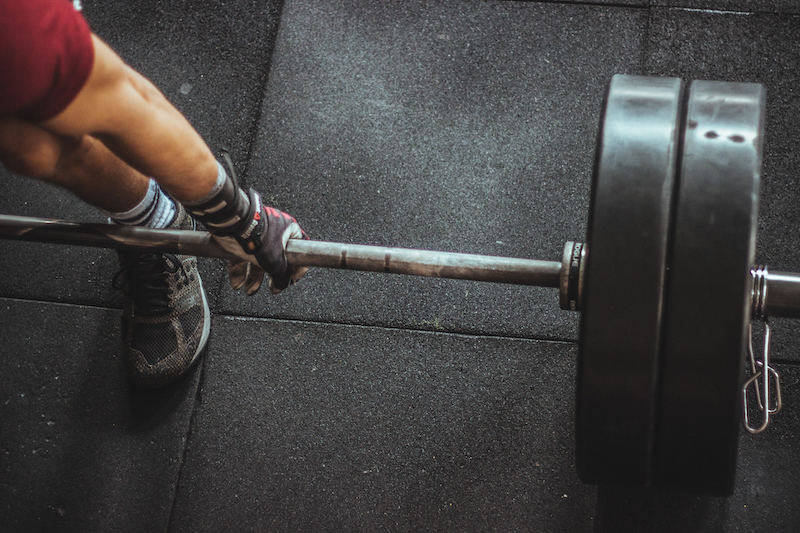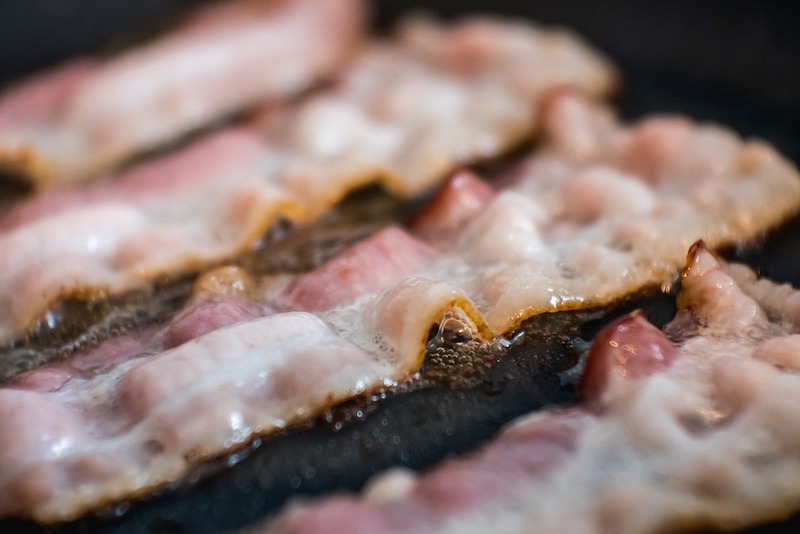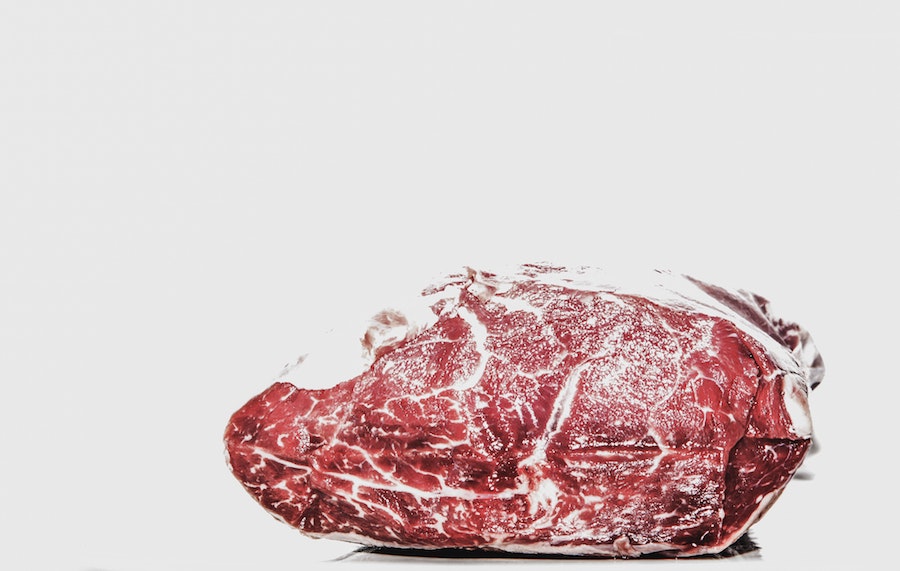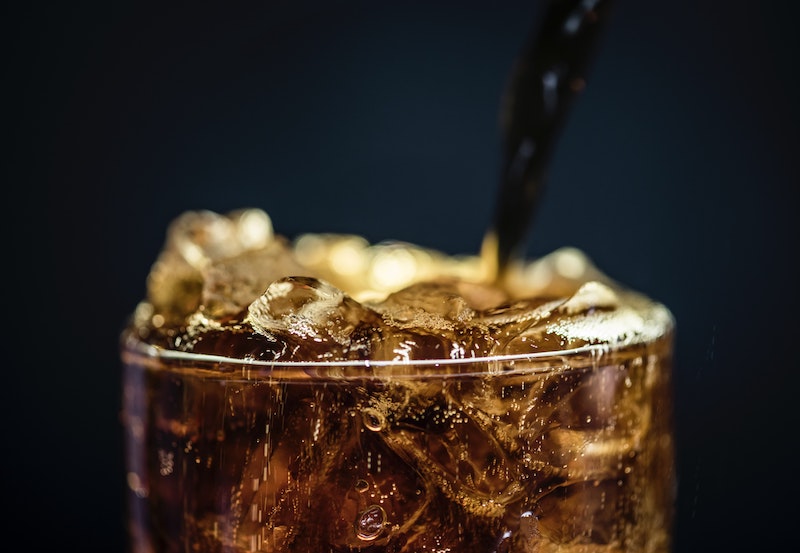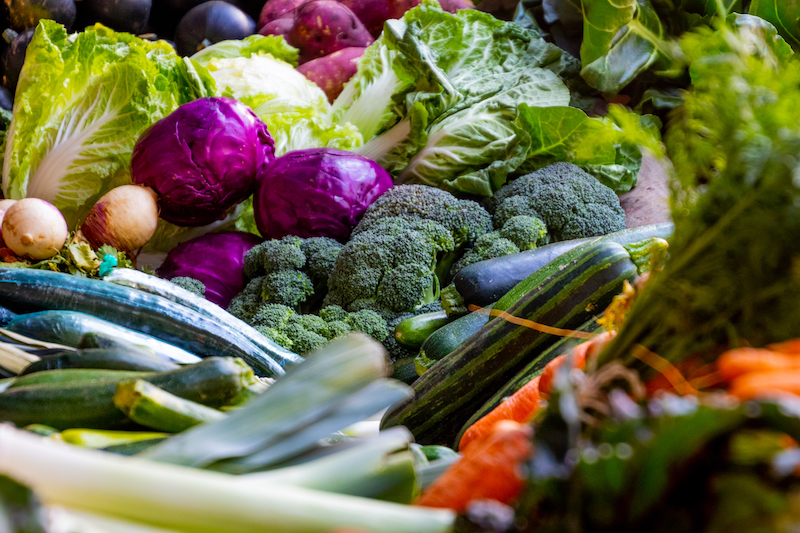Whether you’re a strength athlete or a bodybuilder — in fact, even if you’re neither — there’s an extremely good chance that at some point in your life you’ve wanted to lose fat while losing as little muscle as humanly possible. Depending on the amount of weight you want to lose, along with your genetics and your workouts, it can be practically impossible to not lose at least some of your muscle on the way down. But there are certainly a lot of easily correctable mistakes that athletes make that result in more muscle lost than necessary.
We’ve spoken to New York-based dietitians Leyla Shamayeva MS, RD and Natalie Rizzo, MS, RD, and Dr. Spencer Nadolsky, an obesity doctor and author of The Fat Loss Prescription and The Natural Way to Beat Diabetes, to learn some of the most important fat loss tips that a lot of athletes forget.
In this article, we’re covering:
- How fast can I lose fat?
- Strength and fat loss
- Calories and macronutrients for fat loss
- Hormones and weight loss
Editor’s note: The content on BarBend is meant to be informative in nature, but it should not be taken as medical advice. The opinions and articles on this site are not intended for use as diagnosis, prevention, and/or treatment of health problems. Speak with your physician before undertaking any weight loss regimen.
How Fast Can I Lose Fat?
Perhaps the most important lesson is to avoid trying to lose weight too quickly. We know you’re going to the beach next week, we know you feel like you blinked and gained ten pounds without realizing it, but if your goal is to preserve as much muscle as you can then for most people, a pound of fat lost per week is the maximum you should go for. But that’s still quite an accomplishment.
“What you should want to see is slow, consistent weight loss. Your body will thank you for it,” says Shamayeva. “A pound of weight loss per week — that’s about a 3500 calorie deficit — is perfectly reasonable. And if you have the option to do it more slowly, it’ll help your physical and mental health. Your hormone and especially your testosterone levels will stay more balanced, you’ll have less opportunity to obsess or restrict your food, and psychologically you may not feel as hungry as you would with a larger deficit.”
That’s worth emphasizing: losing weight typically results in a drop in testosterone and gaining muscle provides an increase. That’s not to say you’ll be diagnosable as having low T, just that losing weight more gradually will help to do a better job of keeping your testosterone higher than it would be with dramatic calorie deficits.
But how quickly you can and should lose fat depends on your body fat levels: an obese person can lose fat a lot more quickly, easily, and with fewer side effects than someone who’s already lean. People with very high body fat might want to think about a 7,000 calorie deficit per week, which would result in two pounds lost. Dr. Nadolsky points out that while you don’t want to lose weight too fast, it’s no fun to lose it too slowly, either.
“When people go too slow in the beginning it can cause diet fatigue, which goes counterintuitive to what most people think,” he says. “Most people think people go too fast, but if you have a lot of weight to lose, say you’re in 20 to 30 percent body fat range, you can probably go a bit faster relative to a person who is a lot leaner, perhaps as high as 1 percent of your weight per week.”
Your own case will be individual and while we’ve said this already, definitely chat to a physician or dietitian to find out what the best strategy is for you.
Strength and Fat Loss
Here’s a big thing that separates strength athletes and bodybuilders: a lot of the time, you’re stronger and perform better if you’re carrying a decent amount of body fat. We’re not talking about obesity levels, here, but your adipose tissue does play an important role in maintaining hormonal health, energy levels, mood, and some aspects of performance.
“I know that athletes are always trying to burn as much fat and retain as much muscle as possible during weight loss, but I think it’s worth considering an approach that will leave some fat on your body,” say Shamayeva. “Slicing your body fat down to single digits can hamper mood, sleep, and performance. This may be an individual thing, so see how you feel — just remember that a fanatical focus on fat loss can easily hinder strength. Everyone should take a more balanced approach to body comp.”
We’d love to tell you an exact body fat percentage that everyone should shoot for to have the best performance and aesthetics but like Shamayeva says, it’s an individual thing. Of course, we recognize that you probably have a weight class to think about, it’s just worth remembering that many a strength athlete has focused intently on dropping body fat to meet a goal weight and found that their performance winds up worse than if they’d kept some fat on their frame for the ride. Of course, muscle is still tremendously important for strength and for most athletes, figuring out their individual body’s best balance of muscle and fat is simply achieved through trial and error.
Once they’ve been competing for a few years, many athletes wish they could tell their younger selves that extra muscle mass isn’t always needed and sacrificing a little muscle for a little fat would have resulted in better performance, even if it’s just because of the effect on sleep and hormones.
[Learn more: Should I Gain Muscle or Fat?]
Calories and Macronutrients for Fat Loss
The science agrees that whether you’re gaining or losing weight, athletes should aim for 1.6 to 2.2 grams of protein per kilogram of bodyweight if they want to gain or retain as much muscle as they can, and yes, that means you can drop as low as 0.72 grams per pound of weight.(1)
“The more fat you have the less protein per bodyweight you’re going to need, it’s when you get leaner is when you need to be a bit more precise,” adds Nadolsky. “So if you have a lot of excess fat you can go lower on your protein per pound, but the leaner you are, the closer you should be to that 0.8 to 1 gram per pound goal.”
[Thought you could never dip below 1 gram per pound? Read How Much Protein Do I Actually Need to Eat?]
The harder task is figuring out how many calories to consume overall and what the rest of your macronutrients should look like. Your calories will depend on your height, weight, body fat levels, and activity levels, and even then the numbers that online calculators and even dietitians recommend are something of a crapshoot: it’s a number to start with, then experiment with until you get the best idea for what works for your weight loss goals.
“People tend to focus on what the can’t eat when on a weight loss plan, rather than what they can eat,” says Rizzo. “Although you’re probably minimizing your intake of fatty foods, snacks, and sweets, you can usually eat as many vegetables as you want, as well as lean protein and fruit. You don’t need to starve yourself and stop eating entirely. Instead, build a healthy plate with tons of fruits and veggies, then add your protein and carbs as needed.”
“Patience is key when it comes to body comp,” says Shamayeva. “It’s often a math game, but remember that calorie burn and intake are estimates. Don’t get discouraged if you need to experiment a bit with intake and exercise. Online calculators are a cheap, reasonable option for a calorie burn estimate. The next step up, without getting or paying for any tests, is a personal fitness tracker.
We know that “it’s all individual” is more frustrating to read than an article that tells you the precise calories and macros you require, but an article that does that isn’t doing you any favors. Our bodies vary a lot.
A calorie goal is easier to land on than a macronutrient goal, though. Unless you’re pretty lean, once you’ve figured out how many calories you burn a day you can comfortably aim for a deficit of 3,500 calories per week to result in a pound of weight loss. (We know that even this is controversial but we’re trying to be helpful, here. It’s accepted widely enough that it’s not a bad place to start.)
This brings up the eternal question of whether low carb or low fat is best for weight loss, but especially when it comes to athletes — who have to maintain a certain amount of activity, so a weight loss diet that leaves them feeling (and performing) like trash isn’t that useful — it comes down to what feels better.(2)
Some people feel fantastic without all those carbs spiking their insulin, others feel great with all that sustained energy. Filling up your macros with fat at the expense of necessarily reducing carbs can make some folks feel sluggish. For others, it just works.
Besides pointing out that going very low in fat, like under 10 percent of your daily calories, could tamper with testosterone levels, figuring out the rest of your macros is up to you.(3)(4)(5) It’s true that broadly speaking, programs usually recommend going higher in carbs for weight gain and lower in carbs for weight loss, but so long as your calories are in check, it’s best to eat in a way that makes you able to work out as hard as you can. For most people that means eating more food and carbs on days they work out than on rest days — this is one nifty trick that helps you work out harder and your muscles recover better.
“In general, your goal should be to maintain as much strength as possible during weight loss,” says Nadolsky. “If you’re sending that signal with weight lifting, you’re going to have your best bet.”
[If you have trouble managing your appetite, you may want to check out our picks for the best women’s fat burner supplement.]
Hormones and Weight Loss
There was a craze in the 2000s and early 2010s that revolved around optimizing hormones for fat loss, that eating to optimize leptin or ghrelin or insulin production is the real key to unlocking your dream physique. We’ve already covered the most important parts: if you think of fat loss as a pyramid, the biggest and most important layer is calorie balance, then macronutrients, and after that you get people arguing as to whether sleep or micronutrients or hormones are more important.
The point is that your work is largely done once you figure out your calories and macros but if you want to fine tune even more, these are the hormones you’ll hear people talking about the most when it comes to fat loss.
Testosterone
It helps you gain muscle and lose fat, along with improving mood and sex drive and a bunch of other things that are more indirectly associated with performance. Like we said, it’ll take a hit while you’re losing weight but keeping your fat intake adequate, getting plenty of sleep, consuming plenty of Vitamin D, magnesium, and zinc, and lifting heavy weights will help to minimize the dips.(6)(7)(8)(9)(10)
Growth hormone
Also associated with more muscle and less body fat along with better joint health, you can keep yours relatively high with high intensity exercise, getting enough deep sleep, and with an occasional fast.(11)(12)(13)
[Learn more: The Complete Guide to Naturally Boosting Testosterone.]
Ghrelin
Called “hunger’s timekeeper,” ghrelin increases appetite and it’s responsive to schedules: the more often you eat, the more regularly you’ll get hungry. Ghrelin can bother some people when they’re trying to lose weight — fasting regularly can stop it from secreting as often but other tried and true ways to keep ghrelin down is to eat protein at every meal and avoid sugar sweetened drinks.(14)(15)(16)(17) Lots of quality sleep also keeps it in check.(18)
Cortisol
The “stress hormone” could increase your appetite and the odds of retaining and gaining body fat.(19) It also might increase if you’re stressing the body by combining exercise and low calorie diets.(20) It can be managed by managing your stress levels, avoiding dramatic calorie deficits, and… getting enough sleep.(21)(22) Noticing a pattern?
[Learn more about the relationship between stress and strength in our guide to stress here.]
Leptin
A “satiety hormone” that reduces appetite. Overweight people actually have more of it, but they’re also less sensitive to it, so the advice of “keep your leptin high for fat loss” oversimplifies things.(23)(24)(25) Research suggests you may be able to keep your leptin response healthy by keeping inflammation down with a diet rich in fruits, vegetables, and fatty fish.(26)(27) Believe it or not, getting enough sleep also helps.(28)(29)
“Research suggests that lack of sleep is one of the main causes of overeating and obesity,” says Rizzo. “Get 7 to 8 hours of sleep each night to help with your weight loss goals.”
Insulin
This one is super complicated, but the long and short of it is that insulin releases when you eat carbs (and a little when you eat protein) and it helps shuttle sugar and nutrients out of the blood and into the muscles and other organs where they’re needed. Like leptin, you can becomes less sensitive to its effects — the more insulin resistant you are, the higher your risk of diabetes and the more likely carbs are to turn to fat. Keep your insulin sensitivity high by exercising regularly, managing stress, and eating a lot of veggies and fiber.(30)(31)(32)(33)(34)(35)(36) Also, get enough sleep.(37)(38)
Wrapping Up
Forget the gimmicks when you’re trying to lose weight. Calorie balance is paramount, the right macronutrients are what works for you, eat a lot of plants, consume more calories on days you work out. A pound of fat lost every week is well within reach — just for goodness’ sake, get enough deep sleep.
References
1. Rodriguez NR, et al. Position of the American Dietetic Association, Dietitians of Canada, and the American College of Sports Medicine: Nutrition and athletic performance. J Am Diet Assoc. 2009 Mar;109(3):509-27.
2. Gardner CD, et al. Effect of Low-Fat vs Low-Carbohydrate Diet on 12-Month Weight Loss in Overweight Adults and the Association With Genotype Pattern or Insulin Secretion: The DIETFITS Randomized Clinical Trial. JAMA. 2018 Feb 20;319(7):667-679.
3. Hämäläinen E, et al. Diet and serum sex hormones in healthy men. J Steroid Biochem. 1984 Jan;20(1):459-64.
4. Hämäläinen EK, et al. Decrease of serum total and free testosterone during a low-fat high-fibre diet. J Steroid Biochem. 1983 Mar;18(3):369-70.
5. Wang C, et al. Low-fat high-fiber diet decreased serum and urine androgens in men. J Clin Endocrinol Metab. 2005 Jun;90(6):3550-9.
6. Pilz S, et al. Effect of vitamin D supplementation on testosterone levels in men. Horm Metab Res. 2011 Mar;43(3):223-5.
7. Cinar V, et al. Effects of magnesium supplementation on testosterone levels of athletes and sedentary subjects at rest and after exhaustion. Biol Trace Elem Res. 2011 Apr;140(1):18-23.
8. Oluboyo AO, et al. Relationship between serum levels of testosterone, zinc and selenium in infertile males attending fertility clinic in Nnewi, south east Nigeria. Afr J Med Med Sci. 2012 Dec;41 Suppl:51-4.
9. Barrett-Connor E, et al. The association of testosterone levels with overall sleep quality, sleep architecture, and sleep-disordered breathing. J Clin Endocrinol Metab. 2008 Jul;93(7):2602-9.
10. Craig BW, et al. Effects of progressive resistance training on growth hormone and testosterone levels in young and elderly subjects. Mech Ageing Dev. 1989 Aug;49(2):159-69.
11. Ho KY, et al. Fasting enhances growth hormone secretion and amplifies the complex rhythms of growth hormone secretion in man. J Clin Invest. 1988 Apr;81(4):968-75.
12. Takahashi Y, et al. Growth hormone secretion during sleep. J Clin Invest. 1968 Sep;47(9):2079-90.
13. Deemer SE, et al. Pilot study: an acute bout of high intensity interval exercise increases 12.5 h GH secretion. Physiol Rep. 2018 Jan;6(2).
14. Teff KL, et al. Dietary fructose reduces circulating insulin and leptin, attenuates postprandial suppression of ghrelin, and increases triglycerides in women. J Clin Endocrinol Metab. 2004 Jun;89(6):2963-72.
15. Ma X, et al. Ghrelin receptor regulates HFCS-induced adipose inflammation and insulin resistance. Nutr Diabetes. 2013 Dec 23;3:e99.
16. Lejeune MP, et al. Ghrelin and glucagon-like peptide 1 concentrations, 24-h satiety, and energy and substrate metabolism during a high-protein diet and measured in a respiration chamber. Am J Clin Nutr. 2006 Jan;83(1):89-94.
17. Gannon MC, et al. Effect of a high-protein diet on ghrelin, growth hormone, and insulin-like growth factor-I and binding proteins 1 and 3 in subjects with type 2 diabetes mellitus. Metabolism. 2011 Sep;60(9):1300-11.
18. Taheri S, et al. Short sleep duration is associated with reduced leptin, elevated ghrelin, and increased body mass index. PLoS Med. 2004 Dec;1(3):e62.
19. Epel E, et al. Stress may add bite to appetite in women: a laboratory study of stress-induced cortisol and eating behavior. Psychoneuroendocrinology. 2001 Jan;26(1):37-49.
20. Tomiyama AJ, et al. Low calorie dieting increases cortisol. Psychosom Med. 2010 May;72(4):357-64.
21. Samel A, et al. Sleep deficit and stress hormones in helicopter pilots on 7-day duty for emergency medical services. Aviat Space Environ Med. 2004 Nov;75(11):935-40.
22. Taheri S, et al. Short sleep duration is associated with reduced leptin, elevated ghrelin, and increased body mass index. PLoS Med. 2004 Dec;1(3):e62.
23. Considine RV, et al. Serum immunoreactive-leptin concentrations in normal-weight and obese humans. N Engl J Med. 1996 Feb 1;334(5):292-5.
24. Yang R, et al. Leptin signaling and obesity: cardiovascular consequences. Circ Res. 2007 Sep 14;101(6):545-59.
25. Allison MB, et al. 20 years of leptin: connecting leptin signaling to biological function. J Endocrinol. 2014 Oct;223(1):T25-35.
26. Huerta AE, et al. Effects of α-lipoic acid and eicosapentaenoic acid in overweight and obese women during weight loss. Obesity (Silver Spring). 2015 Feb;23(2):313-21.
27. Ellulu MS, et al. Effect of long chain omega-3 polyunsaturated fatty acids on inflammation and metabolic markers in hypertensive and/or diabetic obese adults: a randomized controlled trial. Food Nutr Res. 2016 Jan 29;60:29268.
28. Spiegel K, et al. Brief communication: Sleep curtailment in healthy young men is associated with decreased leptin levels, elevated ghrelin levels, and increased hunger and appetite. Ann Intern Med. 2004 Dec 7;141(11):846-50.
29. Spiegel K, et al. Leptin levels are dependent on sleep duration: relationships with sympathovagal balance, carbohydrate regulation, cortisol, and thyrotropin. J Clin Endocrinol Metab. 2004 Nov;89(11):5762-71.
30. Horton, E. et al. Food Components to Enhance Performance: An Evaluation of Potential Performance-Enhancing Food Components for Operational Rations. Institute of Medicine (US) Committee on Military Nutrition Research; Marriott BM, editor. Washington (DC): National Academies Press (US); 1994.
31. Adam TC, et al. Cortisol is negatively associated with insulin sensitivity in overweight Latino youth. J Clin Endocrinol Metab. 2010 Oct;95(10):4729-35.
32. Magkos F, et al. Improved insulin sensitivity after a single bout of exercise is curvilinearly related to exercise energy expenditure. Clin Sci (Lond). 2008 Jan;114(1):59-64.
33. Yu K, et al. The impact of soluble dietary fibre on gastric emptying, postprandial blood glucose and insulin in patients with type 2 diabetes. Asia Pac J Clin Nutr. 2014;23(2):210-8.
34. Anderson JW, et al. Health benefits of dietary fiber. Nutr Rev. 2009 Apr;67(4):188-205.
35. Munir KM, et al. Mechanisms for food polyphenols to ameliorate insulin resistance and endothelial dysfunction: therapeutic implications for diabetes and its cardiovascular complications. Am J Physiol Endocrinol Metab. 2013 Sep 15;305(6):E679-86.
36. Manzano M, et al. Apple polyphenol extract improves insulin sensitivity in vitro and in vivo in animal models of insulin resistance. Nutr Metab (Lond). 2016 Apr 30;13:32.
37. González-Ortiz M, et al. Effect of sleep deprivation on insulin sensitivity and cortisol concentration in healthy subjects. Diabetes Nutr Metab. 2000 Apr;13(2):80-3.
38. Donga E, et al. A single night of partial sleep deprivation induces insulin resistance in multiple metabolic pathways in healthy subjects. J Clin Endocrinol Metab. 2010 Jun;95(6):2963-8.
Featured Image: Fotokvadrat / Shutterstock


